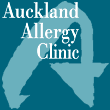|
This Month's Feature Review:
Idiopathic Anaphylaxis: An Update
Vincent St Aubyn Crump
Idiopathic Anaphylaxis (IA) is a well-described syndrome of anaphylaxis without any recognised external trigger. These patients present with the same symptoms as patients with other types of anaphylactic reaction. The attacks occur with variable frequency. Fatalities have been reported in patients who have been diagnosed with idiopathic anaphylaxis.
Bacal et al first reported IA in 1978 [1], when they published data on 11 patients whose episode of anaphylaxis could not be explained. The series has been expanded to include over 335 patients. Atopy was noted in 48% of the patients (the same percentage implicated in the Spanish series of 81 patients).
The disease exists in all age groups and proves expensive if not diagnosed and treated early. It is reported to be more common in women, with 65% of 335 idiopathic anaphylaxis patients being women in the largest published series in the literature.
Read the Full Article

New and Interesting Allergy Studies:
Maternal dietary antigen avoidance during pregnancy and/or lactation for prevention or treating atopic disease in the child (Cochrane Review)

Maternal dietary antigen avoidance during pregnancy and/or lactation for prevention or treating atopic disease in the child (Cochrane Review)
Kramer MS, Kukuma R
Background: Some breast-fed infants with atopic eczema benefit from elimination of cows milk, egg, or other antigens from their mothers diet. Maternal antigens are also known to cross the placenta.
Objectives: To assess the effects of prescribing an antigen avoidance diet during pregnancy and/or lactation on maternal & infant nutrition and on the prevention or treatment of atopic diseases in the child.
Search Strategy: The Cochrane Pregnancy & childbirth Group trials register (October 2002) was searched and researchers in the field contacted.
Selection criteria: All randomised or quasi-randomised comparisons of maternal dietary antigen avoidance prescribed to pregnant or lactating women. Trials with multimodal interventions that included manipulation of the infants diet other than breast milk or of nondietary aspects of the infants diet were excluded.
Data collection & analysis: Data was extracted from published reports, supplemented by additional information received from the researchers that were contacted.
Results: The evidence from 4 trials involving approximately 451 participants did not suggest a protective effect of maternal dietary antigen avoidance during pregnancy on the incidence of atopic eczema during the first 12 to 18 months of life.
The restricted diet during pregnancy was associated with a slightly but statistically significant lower mean gestational weight gain, nonsignificantly higher risk of preterm birth, and a nonsignificant reduction in mean birthweight.
The evidence from 3 trails involving approximately 210 participants suggests a protective effect of maternal antigen avoidance in lactation on the incidence and severity of atopic eczema during the first 12 to 18 months.
Reviewers conclusions: "Prescription of antigen avoidance diet to a high-risk woman during pregnancy is unlikely to substantially reduce her childs risk of atopic diseases, and such a diet may adversely affect maternal and/or fetal nutrition.
Prescriptopn of an allergen avoidance diet to a high-risk mother during lactation may reduce her childs risk of atopic eczema, but better trials are needed.
Dietary allergen avoidance by lactating mothers of infants with atopic eczema may reduce the severity of the eczema, but larger trials are needed."

|

